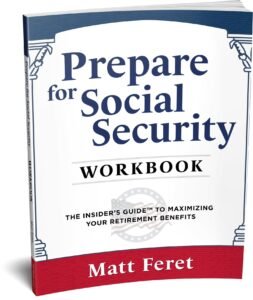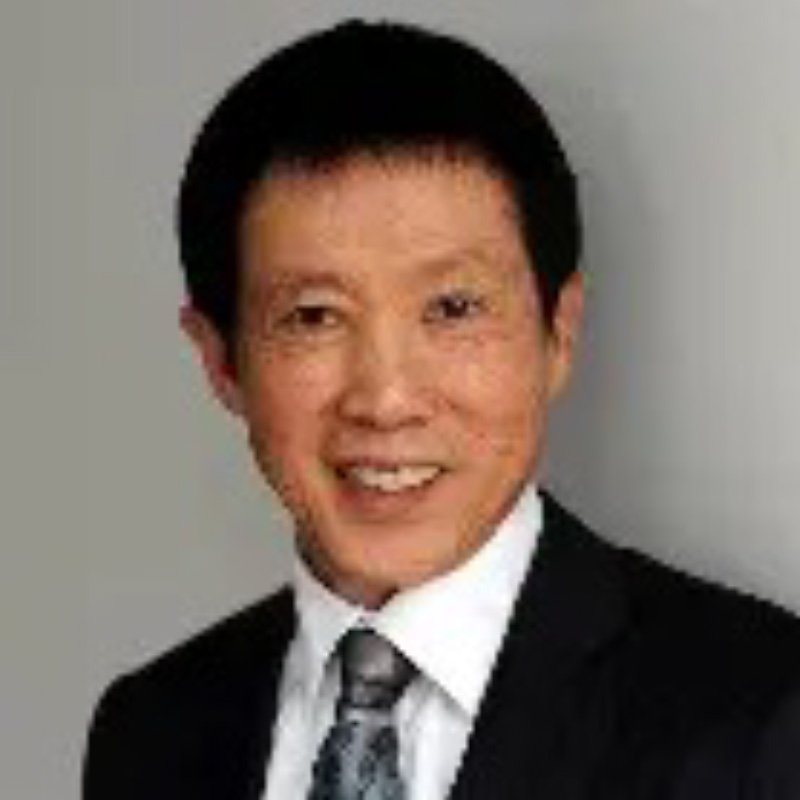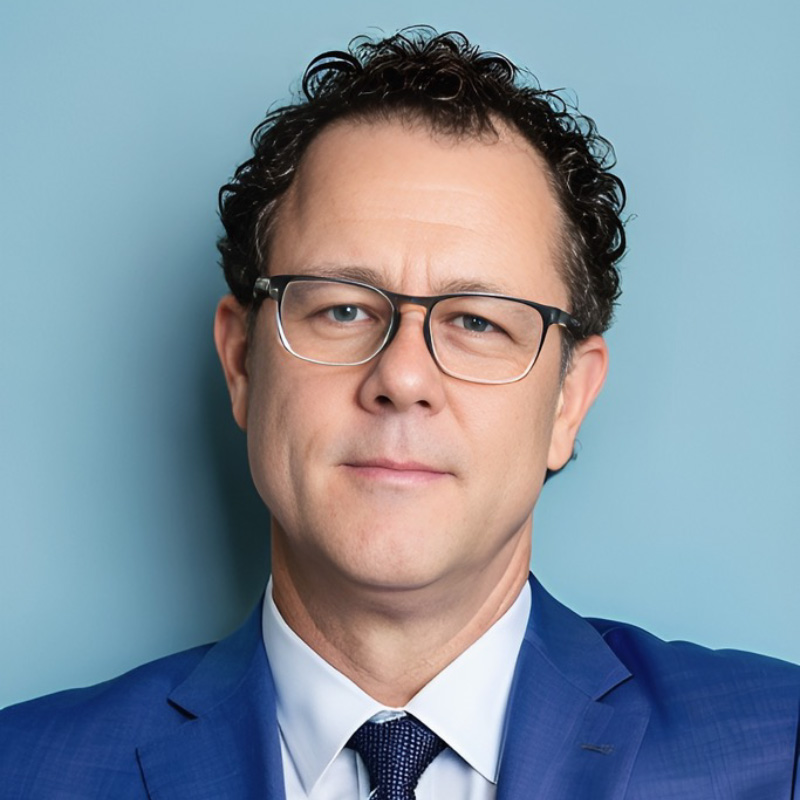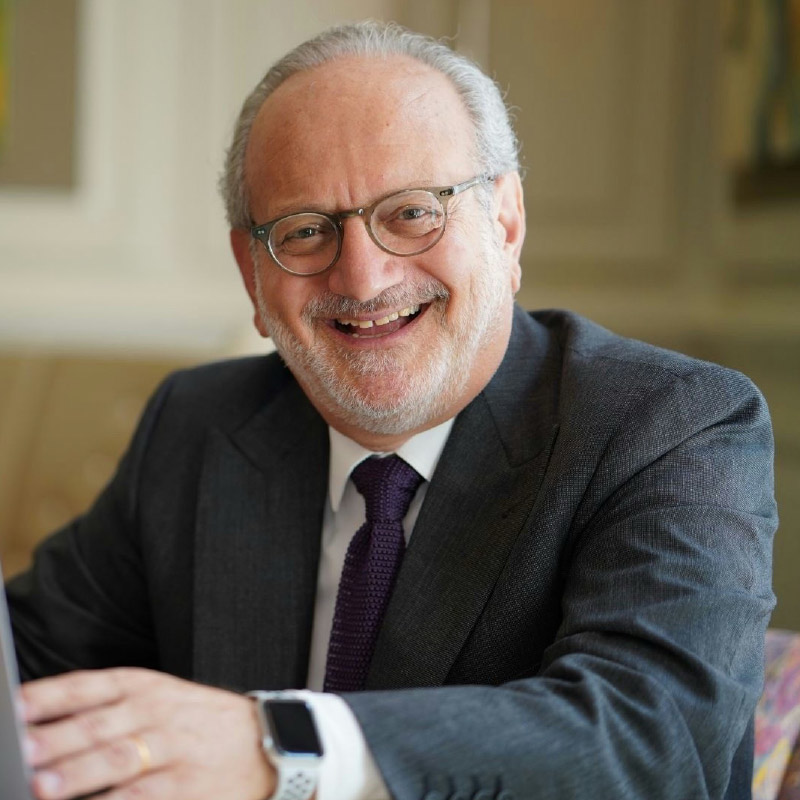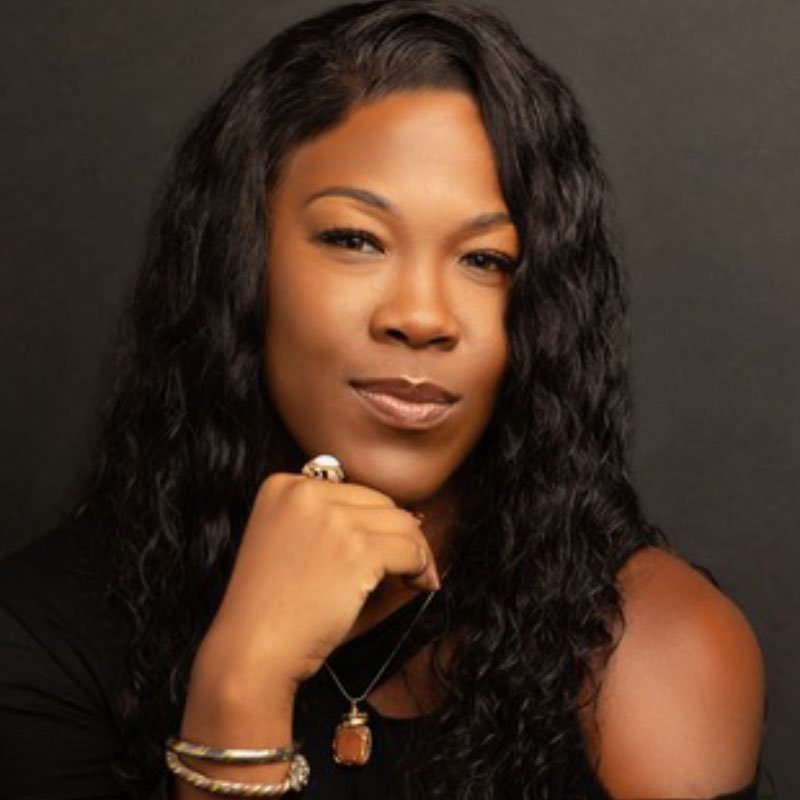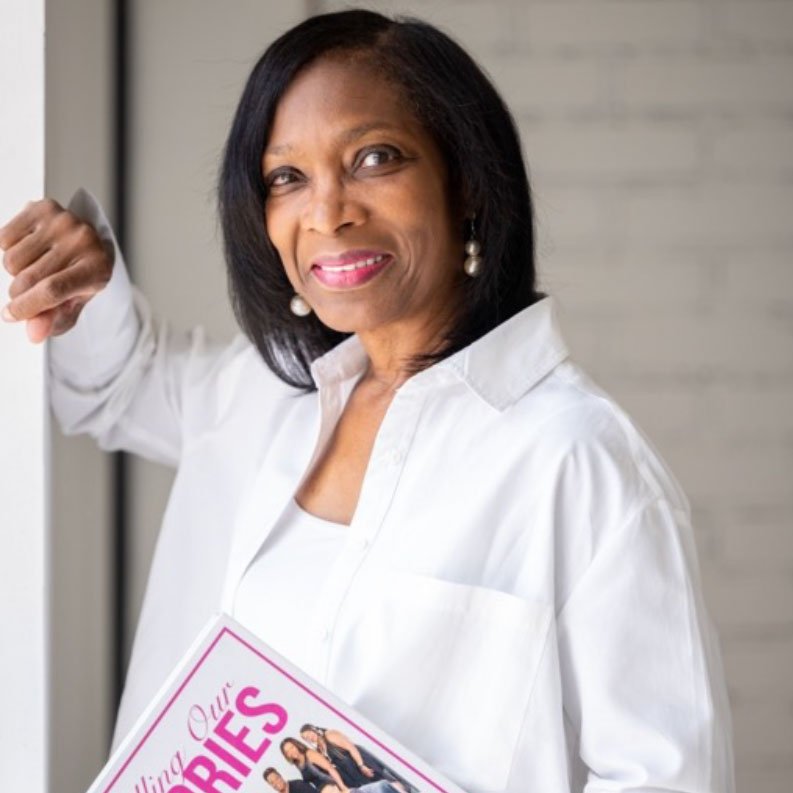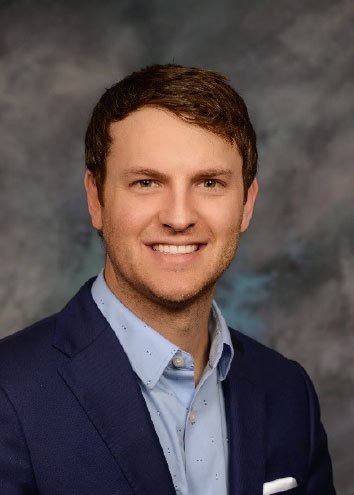#093
Share This:

Retirement is often envisioned by retirees as an eternal vacation. No alarms, no deadlines, no meetings. But as retirement life coach and neuroscience expert Cyn Meyer explains, that sudden stop can do strange things to the brain. After years of chasing goals and deadlines, your mind is wired for achievement. So when the structure disappears, it doesn’t relax, it actually panics. Many retirees experience what Cyn calls “retirement shock,” where the loss of routine and purpose quietly rewires the brain toward anxiety, depression, or a deep sense of aimlessness.
Cyn joins Matt to explain what’s really happening inside the brain when you stop working — and how to prevent negative effects. Through her Rewire Retirement Method, Cyn helps retirees replace structure with growth, rediscover purpose through small daily habits, and create new pathways for meaning that last well beyond a career. In this episode, she reveals how to use your brain’s natural adaptability to build the vibrant, purpose-filled retirement most people never prepare for.
If you enjoyed this episode of The Matt Feret Show, you may also enjoy:
Listen to the episode on Apple Podcasts, Spotify, Deezer, Podcast Addict, Stitcher, Google Podcasts, Amazon Music, Alexa Flash Briefing, iHeart, Acast or on your favorite podcast platform. You can watch the interview on YouTube here.
Brought to you by Prepare for Medicare – The Insider’s Guide book series. Sign up for the Prepare for Medicare Newsletter, an exclusive subscription-only newsletter that delivers the inside scoop to help you stay up-to-date with your Medicare insurance coverage, highlight Medicare news you can use, and reminders for important dates throughout the year. When you sign up, you’ll immediately gain access to seven FREE Medicare checklists.
Quotes:
"Proactively gain clarity. So proactively ask yourself and probe your subconscious brain, but you could get there by just journaling actively every single day just for five minutes about what you imagine your retirement life to be. What you imagine pre-retirement to be. What you imagine, like ‘semi-retirement'. I always hear, ‘Should I retire or should I not?’"
"We all know there's more to life than money. There's more to joy and self-actualization and emotional and mental wellness than just having money in the bank. That's the top of the iceberg and below that are all these invisible factors that we don't plan for so the tangible is the money. But then there's so much more to life and retirement than just financial planning so there's purpose, passion, your sense of contribution, even your sense of freedom and flexibility, feeling relevant, sharing your unique gifts, that's one of my absolute favorites, your sense of belonging which is not just… fitting into like a club, it's literally like who you're aligned with, right? In these different elements throughout your life."
"Otherwise, you just end up in that retirement rut. It directs itself typically into depression and anxiety if you don’t direct it somewhere clear. And so rather than thinking of it as a hard stop, it’s more of where can I direct and reroute my learning? Because we already know that we’re capable of learning anything new, right? And so when we stop working, it’s not just that eternal vacation where we’re on break and we don’t need to learn and achieve anymore. You just need to figure out where you want to achieve and what that looks like."
#093
Selected Link from the Episode:
Host’s Links:
All Things Medicare: prepareformedicare.com
Decoding Social Security: prepareforsocialsecurity.com
My Written Works on Amazon: www.amazon.com/stores/Matt-Feret/author/B09FM3L4WW
The Matt Feret Show YouTube: www.youtube.com/@themattferetshow
Network with me on LinkedIn: http://www.linkedin.com/in/mattferet
Follow me on X: twitter.com/feret_matt
See behind the scenes on Instagram: www.instagram.com/matt_feret/
Join our community on Facebook: www.facebook.com/themattferetshow/
Follow me on Instagram:Matt Feret (@matt_feret) • Instagram photos and videos
Guest Links:
Amazon: Amazon
Second Wind Movement -Seniors Retirement Lifestyle Program
https://www.youtube.com/channel/UCimnhbxgejH89y_B2HSci3w
https://www.amazon.com/Rewire-Retirement-Method-Aimless-Amazing/dp/B0CXYZ1XM3/
Full Show Transcript:
Matt Feret (00:01) Hey everybody, today’s guest isn’t your typical retirement coach. She’s a certified retirement life coach, author, and founder of the Second Wind Movement, where she helps people turn retirement into the most vibrant, purpose-filled chapter yet.
She’s also the author of the Amazon bestseller From Aimless to Amazing: The Rewire Retirement Method, a neuroscience-based system that teaches retirees how to rewire their brains for happiness, purpose, and growth. Today we’re going to talk about why so many people feel lost after leaving full-time work, what’s happening inside your brain during that transition, and how to build new momentum in life after work. Cyn Meyer, welcome to the Matt Feret Show.
Cyn Meyer (00:51) Thanks for having me. I’m so grateful to be here. Nice to see you.
Matt Feret (00:54) Nice to see you and to hear you. So for people who haven’t met you yet, tell everybody what you do, how long you’ve been doing it, and how you help people.
Cyn Meyer (01:03) I’ve been doing this for about a decade now, and it was a calling that started in the background—not what I went to school for or anything like that. I run a company called Second Wind Movement, and it’s very mission-based. I’m a certified life coach for older adults, and I help them transition into retirement, turning those years into their best years—full of purpose, passion, and energy. It’s all the non-financial stuff, the things related to self-actualization, spiraling up, and being very fulfilled.
Matt Feret (01:36) Awesome, thank you. And by the way, I said this before we hit record—thank you for saying “older adult” and not “elderly” or “senior” or any other word. I’m not much into labels, but I’ve always found “older adult” isn’t age-specific, and it’s also not stage-specific. So I’m glad you’re doing that. Thanks—I do it too.
Cyn Meyer (01:56) Yes. And we’ll hear feedback from people, right? Like, “This is offensive, don’t use that term.” So yes, for sure.
Matt Feret (02:00) Yeah. Nobody wants to be called elderly, even if you’re 105. I’m pretty sure.
Cyn Meyer (02:06) Totally agree. What’s interesting is I did a “50 Over 50” interview series, and the first questions I asked were: “How old are you?” and then “How old do you feel inside?” The overwhelming majority of people—like 99%—felt younger. So it’s really about what you identify with. Even at 105, people feel youthful.
Matt Feret (02:28) You describe yourself as a modern life coach for older adults with a neuroscience twist. You said you didn’t go to school for this—I didn’t either—but here we are. What made you connect brain science to retirement?
Cyn Meyer (02:34) There were signposts that started early in my life. I always wanted to work with this audience. I grew up playing music in retirement homes, and I saw early on what happens with a sedentary lifestyle. Both my grandparents passed with Alzheimer’s in 2011, and my dad had brain surgery and 38 rounds of radiation. That’s when I took a deep dive into neuroscience.
My background is in marketing—I went to business school and worked as a marketing director across a wide range of industries, one of them being financial advisors. I saw firsthand people with big nest eggs fall into a sedentary lifestyle, quickly get over the honeymoon period, and then fall into that rut. This kept calling me over the years.
At that point, I got my life coach certification, tailored my coaching tools to older adults, and married that with neuroscience to create my program, the Rewire Retirement Program.
I became obsessed with human behavior—how thoughts inform behavior, what motivates people, and what inspires them to keep growing. I learned it’s very much about leveraging neuroplasticity: hijacking your brain’s ability to create new neural pathways until the day you die, but directing it toward growth. That’s something we don’t learn when we’re preparing for retirement—we only focus on the financial aspect.
That’s the first half polished up. Once you’ve copied this into your document, let me know and I’ll share the second half right after.
thats not half of it
See my thinking
Thanks for flagging that. You’re right — let’s make this a true half. Here’s the first half of your document, cleaned up for spelling, grammar, and spacing, with all original wording and information preserved:
Corrected transcript (part 1)
Matt Feret (00:01) Hey everybody, well today’s guest isn’t your typical retirement coach. She’s a certified retirement life coach, author, and founder of the Second Wind Movement, where she helps people turn retirement into the most vibrant, purpose-filled chapter yet.
She’s also the author of the Amazon bestseller, From Aimless to Amazing, The Rewire Retirement Method, a neuroscience-based system that teaches retirees how to rewire their brains literally for happiness, purpose, and growth. So today we’re gonna talk about why so many people feel lost after leaving full-time work, what’s happening inside your brain during that transition, and how to build new momentum in life after work. Cyn Meyer.
Welcome to the Matt Feret Show.
Cyn Meyer (00:51) Thanks for having me. I’m so grateful to be here. Nice to see you.
Matt Feret (00:54) Nice to see you and to hear you. So for people who haven’t met you yet, tell everybody what you do, how long you’ve been doing it, and how you help people.
Cyn Meyer (01:03) So I’ve been doing this for about a decade now, and it was a calling that kind of started in the background—not what I went to school for or anything like that. But I run a company called Second Wind Movement, and it’s very mission-based, and it’s a certified life coach for older adults, and it’s to help older adults transition into retirement, turn the retirement years into their best years full of purpose and passion and energy. So all the non-financial stuff, the stuff that is related to self-actualization and spiraling up and being very, very fulfilled.
Matt Feret (01:36) Awesome, thank you. And by the way, and I said this before we hit record, thank you for saying older adult and not elderly or senior or any other word that, I mean, I’m not much into labels and words, but I always found older adult kind of makes—it’s not age specific, it’s also not stage specific. So I’m glad you’re doing that, thanks, I do it too.
Cyn Meyer (01:56) Yes. And I mean, we’ll hear the feedback from people, right? Like, this is offensive, don’t use that term, right? And so, yes, for sure.
Matt Feret (02:00) Yeah. Yeah. Nobody wants to be called elderly, even if you’re 105. I’m pretty sure.
Cyn Meyer (02:06) Totally, totally agree. And what’s interesting, I did a 50 Over 50 interview series, and the first questions I asked were, how old are you and then how old do you feel inside? And the overwhelming majority of people, like 99%, felt younger. So it’s kind of like what you identify with, right? And it’s very much a youthful thing, even at 105, for sure.
Matt Feret (02:28) You describe yourself as a modern life coach for older adults with a neuroscience twist. You said you didn’t go to school for this. I didn’t go to school for this, but here we are. What made you connect brain science to retirement?
Cyn Meyer (02:34) Yes. No.
Okay, so there were signposts that started early on in my life. I always wanted to work with this audience. So I grew up playing music in retirement homes. I saw early on what happens with a sedentary lifestyle. And then both my grandparents passed with Alzheimer’s in 2011. My dad had brain surgery and 38 rounds of radiation, so that was when I took a deep dive into neuroscience. And then my background is in marketing. I went to business school, marketing director for a wide range of industries, and one of them was financial advisors. And so that was our clientele. I saw firsthand people with big nest eggs fall into a sedentary lifestyle and just quickly get over the honeymoon period and then fall into that. So this was the thing that just kept calling at me throughout the years. And so at that point, that’s when I got my life coach certification and then married those coaching tools—specifically tailored to older adults—and married that with neuroscience and created my program, the Rewire Retirement Program.
And I became obsessed with human behavior, how your thoughts inform your behavior, and what motivates people, inspires them to keep moving and growing and all these things, right? And so I learned that it was very much based on leveraging neuroplasticity and harnessing your brain’s ability to create new neural pathways until you die—directing it toward your growth. And that’s something we don’t learn when we are training to retire; we just focus on the financial aspect.
Matt Feret (04:22) Yeah, we don’t learn any of that, do we? I mean, it’s nothing that’s, I mean, common knowledge—and those are in air quotes, right? Because your brain finishes growing in your mid-20s, right? Mid to mid-late 20s. And that’s when you’re a fully formed adult human, and then you grow and learn, but your ability to retain and your ability to create new things gets worse as you age. I mean, that’s common knowledge, right? So what you’re saying—that’s not right. And you can still retrain your brain at any age.
Cyn Meyer (04:50) Yes, exactly. So it’s common knowledge to think like, our heyday is over. We’re not designed to learn at this stage. What? Right. So like, we peak in our mid-careers and mid family-life phase of life—like stage two—and then stage three is time to wind down. And it’s like, no, your brain is literally designed to create those new neural pathways until the day you die. We’re just not encouraged as a society, as a culture, to reroute them for new experiences, new growth, new ambitions, new purpose, new identity, right? So I always say we are trained and conditioned to look toward external motivators, which is very powerful. You can get success, you can get money, we achieve, we accomplish, we have these goals, right? And so that is a driver for the majority of our life. And then when that’s gone, then it’s like, well, there’s nothing left for us to do externally; motivators shouldn’t lie. So then I always say this is when we need to reroute to the internal motivators.
And that’s when we gain clarity from the inside out. And it’s not like you’re going to replicate someone else’s retiree life. You’re not going to be—that’s why when people are like, you’re not retired, what do you know about retirement? I’m like, it’s not about me. It’s got nothing to do with me and everything to do with you and your insides. That’s where you’re going to find your purpose, your passions, your growth path—what lights you up literally from the inside out. And I just guide your way there using the power of rerouting your brain.
Matt Feret (06:21) You know, you said the phrase inside out a couple of times right there. And I’ve read that you’ve said one of retirement’s biggest challenges are invisible. Is that what you mean by that?
Cyn Meyer (06:32) Yes. 100%. So there are two layers to that. One is the stereotype of retirement planning equals financial planning. We all know there’s more to life than money. There’s more to joy and self-actualization and emotional and mental wellness than just having money in the bank. That’s the top of the iceberg, and below that are all these invisible factors that we don’t plan for. So the tangible is the money. But then there’s so much more to life and retirement than just financial planning. There’s purpose, passion, your sense of contribution, even your sense of freedom and flexibility, feeling relevant, sharing your unique gifts—that’s one of my absolute favorites—your sense of belonging, which is not just fitting into a club, it’s literally who you’re aligned with in these different elements throughout your life. And it’s going to be multifaceted and robust—like a diverse portfolio of life. Relationships, things like that. Love, right? Spirituality. All these different elements that aren’t visible. And so people tend to just skip over them thinking, I’ll just wing it, I’ll figure it out. All those things that I thought I wanted to do when I was working and didn’t have time for—I’ll just get to those.
Right? And typically that’s not what does it for someone anymore. So the fact that we punt, “I’ll do that when I retire”—you change. We’re designed to grow, evolve, change over time. And so when you get there, it’s like, I’m actually not into that right now. And then it shocks people. But it makes sense because you’re different. Right? You’re evolving. Yeah.
Matt Feret (08:01) It does. I have two electric guitars that I have moved around the country for the last 30 years. That one day, I’m gonna go right back to it. I’m gonna go learn Eddie Van Halen—his entire catalog. I know I’m never—I don’t do it now, I’m not gonna do it. I know I’m not gonna do it, but I still lug it along, thinking that someday when I’m retired, that’s what I’ll do.
Cyn Meyer (08:27) Uh-huh, exactly, exactly. If you are gonna do it, it stands a much better chance of you doing it now.
Five minutes a day—as a fellow musician—literally five minutes a day will get you that momentum that you’re craving, right? And it’s even good just for you to figure out, because you’ve been lugging it around: do I actually love this? Do I love the process versus the outcome—like the whole completed song? Do I like putting my fingers on the neck and getting those little bruises and calluses? Do I like this? Do I like learning? Do I like to jam out? You know—that has a really good chance of surviving in your future if you start now. Don’t wait.
Matt Feret (09:09) So don’t wait, don’t lug it around till I retire—got it.
Yeah, but I mean, really I’ve looked at it. I’ve just gone, do I want to do this anymore? Or do I just want to listen every once in a while? And I don’t know the answer yet, because I just put it away. I go, nah, it’s just there. I’ll get to it.
Cyn Meyer (09:19) Yeah. Yeah, so if you were to move, don’t know if you would move them.
Matt Feret (09:31) Yeah, I don’t know. That’s a good question. I mean, that’s the emotional question, right? And when you talked about planning for retirement financially, that can be emotional. But the other stuff you talked about is emotionally tough. What happens—and you talked about this too—what happens to our brains when we stop working full time? So you just told me, do it five minutes a day while you’re still working, and the odds of you doing this when you’re retiring are much better. So what actually happens to our brains when we stop working full time?
Cyn Meyer (09:32) Yeah. Yeah!
So when you stop working full time, you drop that same routing—that same pattern—in your brain. So it’s like, okay, I am conditioned to achieve. I am conditioned for the next goal. I am conditioned to hit the bottom line, get the income going, get my team going—whatever the position is as a career person. And then when that goes away, it’s not as if your brain stops working, but it stops needing that route, and you need to redirect it somewhere else, right? I always say you invest so much energy and time into your career—growing your career and your family life. And all that energy exerts and goes floating up, and it exerts nowhere unless you specifically direct it somewhere clear.
Otherwise, you just end up in that retirement rut. It directs itself typically into depression and anxiety if you don’t direct it somewhere clear. And so rather than thinking of it as a hard stop, it’s more of where can I direct and reroute my learning? Because we already know that we’re capable of learning anything new, right? And so when we stop working, it’s not just that eternal vacation where we’re on break and we don’t need to learn and achieve anymore. You just need to figure out where you want to achieve and what that looks like. And it’s going to look like a multitude of different formats in retirement—stuff that we don’t want to predict, stuff that we don’t want to say, “We already know ourselves so well at this age” that we’re gonna go, “That’s not for me.” It’s like, no—this is the time to be completely open-minded and not predict any formats or outcomes, because typically what I have found after helping people over the last decade is that it’s a hodgepodge and a multitude of many different facets of you and how you want to share and express yourself and show up and engage with different people in different places, events—all that stuff. And they each have their own cadences. So it’s very vibrant. There are hybrid formats—for example, writing a book or climbing a mountain or being a grandparent—or even just peace, because I’ve been achieving my whole life; now I just want peace. There are so many different facets that I encourage people to allow themselves to experience just by simply being open-minded. I like to say: not a know-it-all—a learn-it-all in retirement.
Matt Feret (12:26) And you also talk about the five rings of retirement, and you list growth, community, health, giving back, and finances. So first question—two-part question. First, which one tends to get neglected first? And then walk us through the rest of them.
Cyn Meyer (12:45) Okay, so the one that gets neglected first is often growth—because of that stereotype, right? Where it’s like, okay, I crossed the finish line. Now it’s time to live a life of leisure only and wind down. Right? And so my whole mission is to flip that stereotype on its head and say, no—it’s time to spiral up, just in completely different formats than you’ve ever imagined. And it’s the beginning of a huge growth journey. So that’s the one that people don’t give as much love to straight out of the gate. They give the most love to finance, and finance in my five rings of retirement—the sole purpose is to fuel your life and the other four more colorful rings of retirement.
Matt Feret (13:31) It’s the tool—you said it’s the fuel. Yeah, because the finances impact the prior four.
Cyn Meyer (13:37) 100%. And if you’re someone who isn’t sitting on top of a huge nest egg and you’re like, it’s really awkward spending down your money—people are like, okay, I know I have it. I know logically I have it in my bank account and my financial advisors gave me lots of green lights, but it’s still really awkward to spend this down and not sock away. So that’s awkward. And then B, if you’re feeling that lack mentality, it is 100% possible to revenue-stream your retirement. I love to call them paid passion projects. So we uncover this amazing way to share your unique gifts. And so that’s in the circle of giving back—share your unique gifts with an audience that you care about. And there’s a 100% revenue opportunity there. You can turn that into something that makes money for you.
Matt Feret (14:30) I think I catch what you’re laying down there. So if you do get a little nervous about the cash burn—because you spent your entire life socking money away in some form or fashion to get to where you are—yeah, I don’t like seeing that dollar amount go down every month and nothing is replacing it. So you’re saying for those types of people who get a little nervous, there is a way to turn your giving back into a little side income—or even more, maybe.
Cyn Meyer (14:36) Absolutely—yes, and people do it.
Matt Feret (14:58) You’ve used the word rewire—rewire your brain. What does that actually mean for someone who is, let’s not say 45, 50, 55—but let’s say 70—and thinks, can my brain really change? I mean, really, can my brain really change?
Cyn Meyer (15:15) Mm-hmm. Yes. Okay, so I’ll tell a story about this. My oldest client so far to date is 92. She was really into the idea of simply learning. So for her, her expression looked like illustrating, and she was getting back to the drawing board—literally—and learning, taking lessons on how to draw, and she loved pencil at the time. She was really invigorated by the idea that, no—my brain is learning. These are new experiences. I’m literally putting two novel ideas and experiences together, and that’s creativity. That was her expression and her sensation of learning and growing. So it is possible for sure at any age. It’s literally connecting two pathways in your brain in a new way—wiring differently—versus just going down that same route that’s well-trenched over and over again. And if that pathway goes away, then it’s like, my gosh, there are no other pathways to a specific topic—hence dementia and stuff like that. So it’s like if I meet you, Feret—today, Matt Feret—and I know one fact about you and that’s it, and I just keep associating you with this podcast and that’s it, and then I know no other facts about you, and that brain pathway goes away, then ten years later when I meet you and I don’t know all these other facts about you—like we had lunch one day, or I know your favorite color and your books and who your family is—then I kind of forget you, versus having all these other routes to you, if that makes sense.
Matt Feret (16:51) It does make sense. So you mentioned a while back—you gave me advice: just do it five minutes a day, right? And that’s a little push in your brain to kind of rewire and start, rather than trying to start a brand new neural pathway from scratch whenever the heck I get to my basement guitars.
Cyn Meyer (16:59) Yeah. 100%. Yes.
Matt Feret (17:12) So that’s an example of what I would think of as kind of a small daily micro step that you just pushed on me. Are there more small daily micro steps that help people rewire their brains?
Cyn Meyer (17:26) Yes, okay. Micro steps are my favorite magic word and process, and most people skip over the process of gaining clarity, right? So, if we dive into a new phase of life and we’re like, okay, I thought that I would be doing a list of ten different things—that may or may not be the case. That’s why a lot of people—let’s say they have jobs and careers where they overextend themselves. Think nurses, education directors, teachers—people who are on the front lines. I hear a lot of blanket statements like, “Volunteering is not for me.” It’s one of those stereotypes, right? Like, you’re supposed to volunteer as an older adult in retirement. And that’s not the case. It’s just we haven’t gained clarity on the type of giving back opportunity—paid or unpaid—that you are fired up about.
Right? You need to share your unique gifts. You’re compelled to do these things. You have this energy inside of you. It can still give you flexibility and freedom, but you’re not writing off volunteering altogether—you just need to gain clarity on the right one. So don’t stuff yourself into Red Cross or Meals on Wheels or something like that. Let’s do the gaining-clarity process first. And I love recommending day after day after day—just five minutes—whether it’s with my program, which is very guided (I give you every question, exercise, prompt, etc.), or on your own organically, where you’re journaling about your dream life—what energizes you. Conjure up that physical emotion in your body—not just ideas. Drop out of your head and into your body and feel the excitement—that’s what passion and energy are.
So when you feel that—if you, for example, think about your guitar and you’re like, my gosh, I’m feeling that energy again, I’m excited, I’m jazzed about this—maybe I do want to do this, maybe I do want to pursue five minutes a day—even before you get to the five minutes a day, spend five minutes a day on the gaining-clarity process. I’d much rather have someone spend five minutes per day—or even less, if you feel like you’re going to skip any days, one minute—literally—versus skipping a whole week and cramming in an hour. It’s so powerful and very effective for anything you want to pursue long-term with momentum and consistency.
Matt Feret (19:47) Love it. Can you share a real-world story of somebody who came into your program feeling lost, feeling unfulfilled, and came out energized again?
Cyn Meyer (19:57) Yes. There are so many different stories. I will say, for everyone, the outcome is totally different. While that occurs, the process is very much the same. For everyone, we do a deep dive over the five rings of retirement first, and you gain clarity before you take any outer action. I say we do the inner action first, then we get clarity, then we switch to outer action.
For a lot of people with big careers—busy, busy, busy—going from 60 to zero is a shock to the system. They’re like, “My gosh, who am I?” The deeper question is identity: who am I? It’s a role shift, a schedule shift, a structure shift—all these shifts at once. People don’t feel like themselves. They ask, “What do I do? I don’t have anything on my calendar.” Or they fill it just to fill it. It’s discombobulating. They get unmotivated, procrastinate heavily, and lose energy.
The outcomes, though, are so different: writing books, starting chapters, consulting gigs, part-time side passion projects that pay, dancing, acting, painting, playing instruments, hiking, marathons, climbing mountains, becoming the best grandparent or spouse. Creativity is massive for expression. Fitness is another. But 100% of the time, when you do this inner work first, you show up as a better, more authentic version of yourself. Your dynamics shift for the better. And 100% of the time, relationships improve. That’s the streamlined result across the board.
Matt Feret (21:59) You’ve experienced a lot of loss in your life—and not easy loss. Alzheimer’s, for example, is a very sad decline to witness. How did that shape your mission and the program you built?
Cyn Meyer (22:46) The loss and grief never really go away. They have their own calendar, flare-ups at their own time. It’s chaotic. But I felt early on that it made me compassionate, and that only increases with every loss. I feel cumulative grief with each one.
It gave me strong empathy and compassion for individuals. When you step up to someone and know their story, you can’t help but love them. That has helped me become more of a conduit to help individuals. Loss puts you right up against death—you ask, “What is really meaningful in life?” That was the driving factor behind me becoming a life coach. And it gave me empathy to see from others’ perspectives, to see them for who they are and what they want. I see myself as the vessel to help and serve.
Matt Feret (24:25) I understand that. Thanks for explaining. It’s clear this isn’t just a system or process—it’s part of who you are and what you bring to the table.
Cyn Meyer (24:39) Right. Thank you.
Matt Feret (24:54) Loss happens in many ways—divorce, loss of a child, loss of a job. Losing a job can feel like losing a part of yourself. How do you help people rebuild identity once that goes away?
Cyn Meyer (25:46) I see it as a growth path. Rather than “that’s gone,” it’s “thank you for that, now I’m ready for the next stage.” I help clients pull everything resonant from that role or identity and carry it forward, morphing into more of themselves. It’s about going inward for answers, not outward. It’s a path of authenticity that widens your capacity to engage and be there for others.
Matt Feret (26:47) What about couples—retiring at different times or suddenly together 24/7 for the first time in decades? Any survival tips?
Cyn Meyer (26:52) Sometimes it’s a blast—people call their spouse their playmate. Other times, all hell breaks loose. I always say: make distinctions. You have your own growth path, passions, and purpose. Your spouse has theirs. And then you have joint activities together. Those three differentiations keep things clear. You won’t get offended when your spouse wants to do their own thing—you’ll encourage it.
Matt Feret (27:52) So even if one spouse is still working full time and the other is retired, you still need to do this.
Cyn Meyer (28:01) Right. Compartmentalizing helps. It doesn’t matter if you’re pre-retired, post-retired, working full-time, part-time, or doing passion projects. When you start seeking answers—“What’s next? What will fulfill me?”—you go for it. I meet people where they are, and it’s usually messy and chaotic. Otherwise they wouldn’t be seeking.
So I always say: it doesn’t matter if one spouse is retired and the other isn’t—you’re still adjusting. There will always be layers of transition, plus subtle identity and fulfillment shifts you don’t actively see on the outside.
Matt Feret (29:03)
And it's wise to be on the same page when you're in a partnership. All the way through that process, I can totally see that. So that's the headline, talk now. Not later, now. So for somebody who's listening or watching that may feel aimless right now, or maybe they've got their finances figured out and they're in pre-retirement. ⁓
Cyn Meyer (29:07)
Yes. Yes. Talk now. No. Yeah.
Matt Feret (29:28)
wondering whether to pull the rip cord on the job or the career or sell their company. What's the first small thing they can do today right now to start kind of thinking about that move and feeling purposeful again? Like they see on the other side of this, like, uh-oh, I might lose my identity and my purpose. So while they're here, what's the first thing they can do today to start feeling that purpose or that other side of the coin today?
Cyn Meyer (29:41)
Yes.
Yes.
Proactively gain clarity. So proactively ask yourself and probe your subconscious brain, but you could get there by just journaling actively every single day just for five minutes like what you imagine your retirement life to be. What you imagine pre-retirement to be. What you imagine like semi-retirement I should say would be the right word because people I always hear about should I retire or should I not? Should I retire or should I not? Like they're like having a lot of anxiety about like setting a date and
Matt Feret (30:21)
light switch, right? It's either on or off. There's no middle ground, but there is.
Cyn Meyer (30:24)
But there is, right? So micro stuff, yes, yes, like proactively. If your brain is seeking like what's next, like I would say don't do the cold turkey thing and start doing it now. Because when people come to me before they officially retire or even before they have a date, it's so much better to implement some of those things that you want to be doing now, like five minutes of guitar now, because then it makes the transition so much more seamless and you're so confident in your, you know, winding down process have to have anxiety about it. You don't have to like, gonna grip on with like these like, you know, these crazy vines I say they come grab people and like, no, you're a lawyer. No, like, and then you like all these fears are that the alarm system is just so strong. So it's like, gain clarity now proactively gain clarity now like really just heighten your awareness and pay attention to what like energizes you and what drains you and start implementing those things now. So if I were to give anyone advice, it'd be to just start that process immediately.
Matt Feret (31:24)
Let's let's talk about the a word accountability. How important is accountability or an accountability partner in all this to keep momentum going? Because I'll tell you, I have not had an accountability partner for my guitar work, except the brain matter between these two ears. So if maybe if I had one or I had a partner in crime, they would learn, ⁓ you know, how to sing like David Lee Roth and I would play Eddie, ⁓ I probably get a lot further than than not touching it for 20 years. So accountability,
Cyn Meyer (31:40)
Yeah.
Yes!
Matt Feret (31:54)
how important is accountability in keeping that momentum up?
Cyn Meyer (31:58)
It's pretty massive at the beginning. ⁓
For sure. So, but there are two types of people. So there's the person who loves accountability and thrives with like hand holding and like active engagement and conversations. And they're the type who like very thorough ⁓ kind of like sounding board like yes confirmation. Okay. Then from there, it's kind of like, okay, got some momentum. We're getting the shifts and then it's like remove me for example, as your training was in you're good to go. Others start off with the self accountability pretty strong.
And so they can do it like regularly so long as there's a process to follow right so when there's like open-ended Unknowns no structure. No direct prompts sometimes people can just get lost or you know continue the old Habit the contention way of just postponing and procrastinating so accountability at the beginning is very very important And there's varying levels of people who are really good at like continuing that once they have a process It's like game on boom and and I'm not as worried about them versus the people that I'm like worried worried but like worried for their momentum to have a lot longevity and then there's others who are like just really into the the hand holding.
Matt Feret (33:13)
When you say handholding, it makes me feel not. Well, I mean, just don't want to like, mean, seriously, if I had a neighbor that came and said, listen, I've got a drum set, you've got a guitar, let's meet up 10, 10 minutes a day, I would do it. I know I would do it. It's just that I'm just a wimp. And I guess I need my handheld, I guess, right?
Cyn Meyer (33:18)
Not good.
Yeah.
I think handling the positive term because that could turn into like something fun, right? Like I would look forward to like jam sessions like five minutes a day. Yeah. And like people who, who I'm calling like, like the hand-holding, they hand-holding, they love session. Like they get so juiced and energized from a conversation, right? Yeah. So.
Matt Feret (33:51)
Yeah, I can see that. Yeah, I can see that. Hey, so let's let's talk. We talked about the a word. Let's talk about the C word.
Community, you know, from my neighbor. This is family show, I wasn't gonna go the other way. The so you know, accountability and then community, right? So even if my community is my neighbor across the street, I mean, look, your world can become very, very tiny, the second you pre retire or retire, right? It mean it can just be all your work buddies, or that's what they were, they were work buddies is only one or two real ones. ⁓ You know, people are out working eight to five or commuting. So it's really seven to seven.
They're not hanging out with you in the middle of the day when you are. So community, how important is community to keeping that momentum going?
Cyn Meyer (34:36)
Massive, massive, massive, but a specific type of community. yes, your friends of convenience go away immediately, right? Because you're like, I'm not driving in the same place as these people anymore. What do I do? So.
The risk is going into isolation and and or just like not connecting and not making that extra effort because it takes extra effort and you don't have relationships based on convenience anymore. ⁓ It's really important to differentiate between what I like to call like circle of influence people and circle of concern people. circle of influence people are people that you want to invest your energy and like, you know, reach out to these people because they encourage your growth, your evolution, challenge,
Right? They are aligned with you and who you're becoming and the circle of concern are, you know, people who are really...kind of stuck in fear-based thinking. They're like into the news and like that gets to them. They gossip a lot. ⁓ Right? Like they're not they don't encourage change whatsoever. And so if you're going to exert energy because community is very, very, important, exert energy into those people who are more aligned in your circle of influence. And there it is possible to have someone in both circles and just put it into the context of an activity. So, for example, you could love and be energized by hanging out with someone like while hiking or something, but like drained when you're like, I don't know, having cocktails and gossiping or something like that. Right. So it's really about just that heightening awareness of what is truly energizing to you in general. Yeah.
Matt Feret (36:13)
Yeah, and segmenting them into those two buckets is unique because as you were describing that, I can see people and I know their names. You just described, right? I mean, you did. You were like, yeah, well, I really enjoy that activity with that guy, but this activity with the same guy, no way.
Cyn Meyer (36:21)
Nice!
Yeah. Right, right. Yeah. That's a big game changer for people. Yeah.
Matt Feret (36:32)
Yeah, so it's segmenting that. Yeah, that is well, it's big. Yeah, I haven't thought about it like that. But it's totally true. All right. This has been great. ⁓ But I've, I've asked a lot of questions. But what questions that have I not asked that I should have?
Cyn Meyer (36:54) Good question. When, so like what about, how does this apply to me? When do I need to consider a life coach or not at all or what, you know? And to me it's like just, it's not black and white.
Matt Feret (37:07)
That's a great question. Yeah, do it. Yeah, when do I call you? When do I email you? When do I go to your website? ⁓ Yeah, do that.
Cyn Meyer (37:16)
Yeah, good
because whenever you're seeking any of these answers whether super shallow and premature and proactive and early on or super deep into a rut where you're like, my gosh, I've been retired for years and I'm just I can't get out of this rut and I'm just not feeling like there's much hope for me ahead. Right. So it's literally just like whenever you're seeking ⁓ go and get some answers whether it's with me or anyone else. I'm just encouraging people in general to go and seek the answers because they are there. And they are inside of you and it's never too old is my whole point like you're not too and it's not too early to start thinking about this stuff for sure right
Matt Feret (38:00)
Yeah, so help me out. it a is it a program as in it? There's a start to finish or is it a start and then it never comes up? So is it a is it a Netflix subscription that that never ends until you cancel it? Or is it kind of a 90 day 180 day? How does this work? Or is it all of the above?
Cyn Meyer (38:18)
It is, so for my program specifically.It's a three month minimum program to really get that new wiring in place so that it like sets the trajectory for bigger growth. And then you can go on your own rinse and repeat. And so it's you're already embodying the system. So it's three month minimum ⁓ for rewire my retirement. And then if you want coaching, there's people who love it. The people who like to have their hand held for years. ⁓ And so I'll just leave that there because this is my passion and calling the coaching and then yeah I just encourage people like in general to when they're seeking just to go out there and see who resonates see what resonates and but basically just to keep looking ⁓ and then know that the answers are from within so everything I publish whether it's like free content videos articles or paid deeper coaching stuff it's like just there for the one goal of helping you achieve your best retirement years full of passion and purpose so
Matt Feret (39:20)
It makes a lot of sense. I'll put a parallel out there if you see if it's right. But yeah, can you lose 10 pounds by going to the gym for 90 days and going through a program with a personal trainer? Sure. And then some small percentage of people can keep that 10 pounds off. But a lot of us probably go like, you know what? Thanks for the 10 pounds, but I want to keep it off. I'm going to keep coming back for some other time until something else changes. that an apt parallel?
Cyn Meyer (39:46)
Perfect.
Matt Feret (39:49)
makes sense. Where can people find you learn more ⁓ or join your program?
Cyn Meyer (39:57)
Secondwindmovement.com is my website. All the stuff is there. Yep. And then I have a YouTube channel with a lot of free videos too.
Matt Feret (40:00)
Awesome. I was gonna say, you
on the, you're on the YouTubes, the, the, Facebooks, it's, it's, it's, you're on everything. Okay, awesome.
Matt Feret (40:12)
Look, this has been fantastic. think a lot of people underestimate how much mindset matters once paycheck stop. ⁓ And so we've talked about, and you've shown that retirement can actually be kind of the start of something bigger and really more genuine perhaps than having your neural pathways hijacked for 20, 30, 40, 50 years, however long you've worked. So if you want to learn more about Sintmire and their rewire retirement method, visit secondwindmovement.com. or check out her book, From Aimless to Amazing on Amazon. Syn, thanks for joining me and thanks to everyone watching or listening for being a part of this community pursuing wealth, wisdom and wellness in every stage of life. Cyn, thanks so much.
Cyn Meyer (40:55)
Thank you so much.



